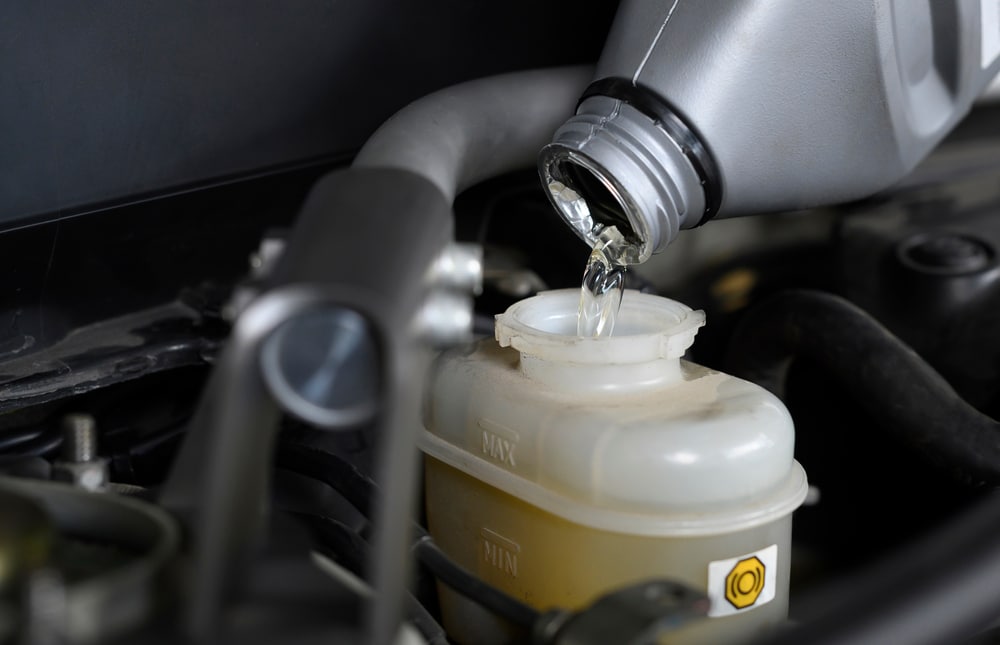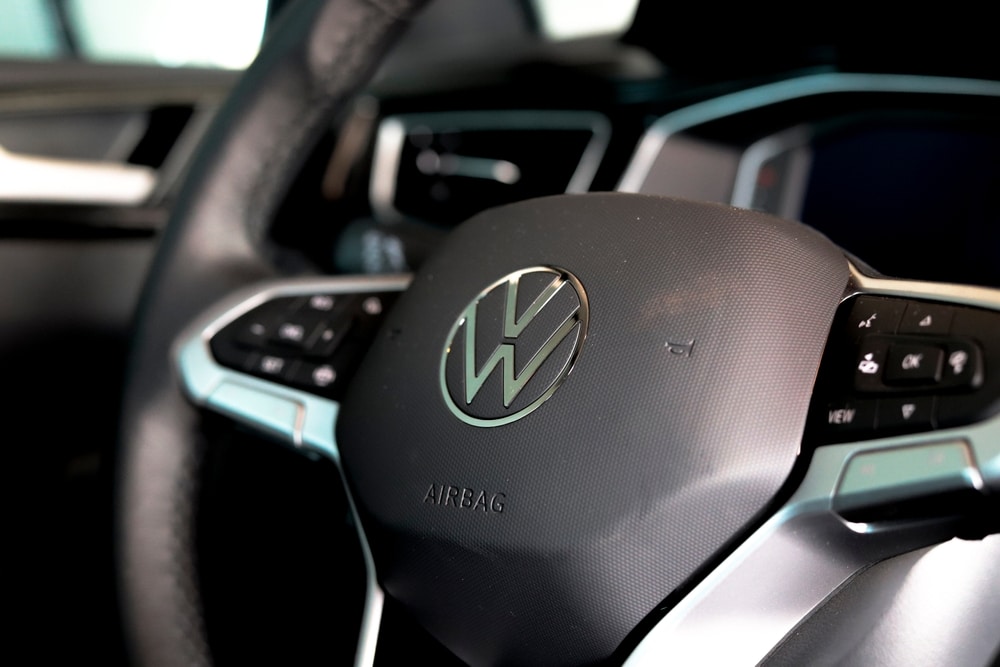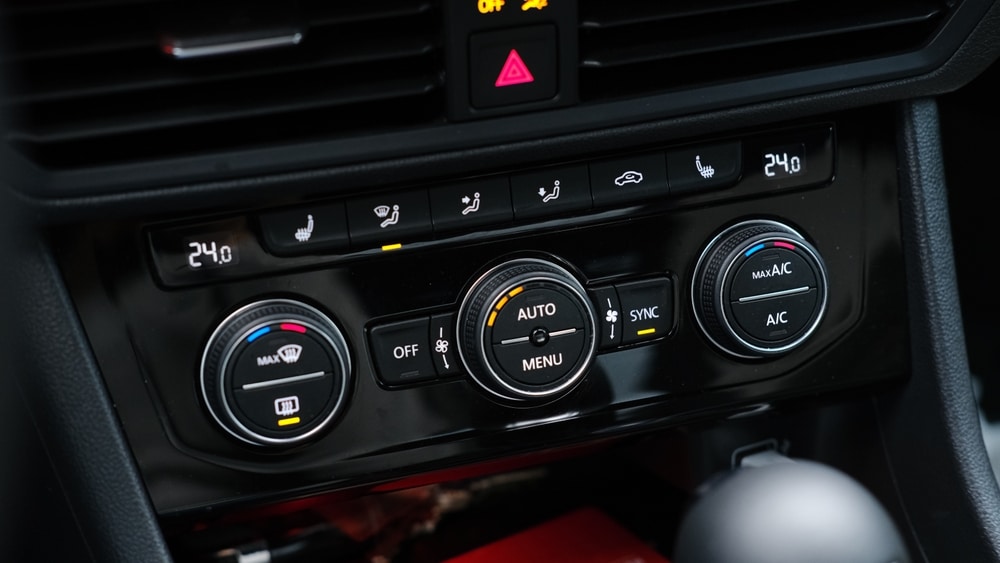Brake Fluid: Why It’s Vital for Every Stop
Brake fluid is the lifeblood of your braking system, converting the pressure of your foot on the pedal into smooth and controlled stopping power. Over time, brake fluid absorbs moisture and deteriorates due to heat and pressure, reducing its ability to perform. If neglected, this can lead to longer stopping distances, a soft brake pedal, or even brake failure during an emergency.
At Fitch Autos, we provide expert brake fluid checks and changes to ensure your vehicle remains safe and responsive. Serving Brownhills, Walsall, and surrounding areas, our team uses the correct fluid type and follows manufacturer standards for total peace of mind.
Call 01543 452630 to book your brake fluid service today.

Why Brake Fluid Matters for Safe Braking
Brake fluid is one of the most important parts of your braking system, ensuring every press of the pedal results in a smooth and reliable stop. As a hydraulic fluid, it transmits the force from your foot to the braking components with precision and speed, allowing your vehicle to respond instantly.
Because brake fluid is incompressible, it delivers pressure evenly across the system, activating callipers or wheel cylinders to press the pads or shoes against the discs or drums. This friction is what slows or stops your car safely.
Brake fluid also protects the braking system by preventing corrosion and keeping moving parts lubricated. It’s designed to handle extreme heat and pressure, but only if it remains clean and in good condition.
Modern technologies like ABS and electronic stability systems rely on brake fluid to work correctly. Keeping your fluid fresh and at the correct specification is essential for maintaining the safety and performance of your vehicle.
How Brake Fluid Transforms Pedal Force into Stopping Power
Brake fluid is the key link between pressing your brake pedal and bringing your car to a controlled stop. When you apply the pedal, you’re not directly pushing a mechanical part on the wheels. Instead, the movement activates a master cylinder, which compresses the brake fluid and generates hydraulic pressure.
This pressure travels through the brake lines to either callipers or wheel cylinders. These components then press the brake pads or shoes against the brake disc or drum, creating the friction needed to slow the vehicle.
When brake fluid is fresh and in good condition, it remains incompressible, allowing hydraulic force to be transmitted instantly and evenly. This ensures smooth, reliable braking every time.
Brake fluid is also essential for modern systems like ABS and electronic stability systems, which require precise pressure control to function effectively. It may not be visible, but brake fluid is working constantly behind the scenes to keep your braking system safe.
How to Locate the Brake Fluid Reservoir
If you open your car’s bonnet, the brake fluid reservoir is usually positioned towards the rear of the engine bay, often on the driver’s side. It’s a small, semi-transparent plastic container, designed so fluid levels can be checked quickly without removing the cap.
Inside the reservoir, a rubber diaphragm or seal prevents air and moisture from entering. This is important because brake fluid is hygroscopic, meaning it absorbs water over time. Excess moisture can reduce its boiling point and impact braking performance if left unchecked.
While the reservoir’s design allows for a simple level check, the condition and colour of the fluid should be assessed by a professional during routine servicing.
At Fitch Autos, we check your brake fluid as part of every service, ensuring your braking system remains safe and responsive.
The Characteristics of Brake Fluid Types
Brake fluid is available in several different grades, each with unique properties designed to handle specific braking demands. Using the correct grade is essential to maintain safety, performance, and the longevity of your braking system.
- DOT 3 Brake Fluid – A glycol-based fluid with a lower boiling point, commonly found in older vehicles that do not have modern ABS or traction control systems. DOT 3 absorbs moisture over time, which reduces its performance and requires timely replacement.
- DOT 4 Brake Fluid – The most commonly used brake fluid in modern vehicles. With a higher boiling point than DOT 3, DOT 4 is better suited for cars with ABS and other advanced braking systems. It is also hygroscopic and should be replaced regularly.
- DOT 5 Brake Fluid – A silicone-based fluid that does not absorb water. This makes it ideal for certain classic or specialist vehicles. However, it cannot be mixed with DOT 3 or DOT 4, as this can cause severe brake system issues, including seal damage.
- DOT 5.1 Brake Fluid – Offers the high thermal performance of DOT 5 but is glycol-based like DOT 3 and DOT 4, making it compatible with modern systems requiring greater heat resistance.
At Fitch Autos, we always choose the correct brake fluid for your vehicle to ensure safe and consistent braking.
Why Brake Fluid Performance Declines Over Time
Brake fluid is designed to handle extreme conditions, but it isn’t immune to deterioration. Over time, exposure to heat, moisture, and contamination reduces its ability to perform effectively, which can compromise your braking system.
Moisture Absorption – Brake fluid is hygroscopic, meaning it naturally absorbs water from the atmosphere, even through tiny gaps in hoses and seals. As the water content increases, the boiling point drops, making the system more vulnerable to vapour lock – a dangerous situation where the fluid boils during heavy braking, creating bubbles that reduce hydraulic pressure.
Heat and Pressure – Each time you brake, heat builds up within the system. Repeated exposure to extreme temperatures gradually causes the fluid to break down chemically, making it less stable under stress.
Chemical Additives and Stability – Brake fluids contain additives to prevent rust and corrosion while protecting rubber seals. Over time, these additives lose their effectiveness, leaving components at risk of damage.
Contamination – Rust particles, rubber debris, or even traces of incompatible brake fluid can contaminate the system, reducing its precision and causing wear.
Brake fluid has a finite lifespan, which is why manufacturers recommend changing it regularly, even if your car seems to brake fine. At Fitch Autos, we test brake fluid quality during every service and provide expert advice to keep your braking system safe and reliable.
Warning Signs It’s Time for a Brake Fluid Change
Brake fluid quietly degrades over time, which means issues can build up without obvious warning. Recognising the early signs of trouble is key to keeping your braking system safe and responsive. At Fitch Autos, we test and replace brake fluid as part of our expert servicing.
Watch for these common warning signs:
- Spongy or Unresponsive Pedal – If the brake pedal feels soft or needs extra force, moisture or air in the fluid could be reducing its pressure.
- Brake or ABS Dashboard Lights – Some vehicles display alerts when fluid levels drop or pressure becomes uneven.
- Burnt or Strong Chemical Smell – A harsh odour from the fluid when the reservoir cap is removed indicates it may have degraded.
- Discoloured Fluid – Fresh brake fluid is clear or pale. Dark, cloudy, or contaminated fluid suggests it’s time for a brake fluid change.
If you notice any of these signs, book a brake fluid inspection with Fitch Autos in Brownhills. Our team will ensure your braking system remains reliable and safe.
Why Brake Fluid Problems Shouldn’t Be Overlooked
Brake fluid quietly degrades over time, and ignoring it can have serious consequences. As it absorbs moisture and breaks down under heat, its ability to transfer hydraulic pressure is reduced, leading to a less responsive pedal or longer stopping distances.
If left unchecked, old or contaminated brake fluid can corrode vital components like callipers, brake lines, and seals. In extreme cases, this can result in complete brake failure during sudden or heavy braking.
That’s why manufacturers recommend routine brake fluid changes, even if your car “feels fine.” At Fitch Autos, we assess the condition of your brake fluid during every service and advise on the safest time to replace it, helping you avoid unnecessary risks and costly repairs.
Why Choose Fitch Autos for Brake Fluid Care
Brake fluid may not be something you think about often, but it’s essential for safe, consistent braking. Over time, it absorbs moisture and loses its ability to transmit hydraulic pressure effectively. If left unchanged, this can lead to longer stopping distances, a soft pedal, or even brake failure in emergencies. That’s why regular brake fluid checks and timely changes are so important.
At Fitch Autos, we carry out professional brake fluid checks and changes to keep your vehicle’s braking system performing at its best. Our skilled team uses manufacturer-approved fluid and follows strict service procedures to ensure the highest level of care.
Why book with Fitch Autos?
- We use the correct, manufacturer-approved brake fluids for your car.
- Highly experienced technicians with specialist expertise.
- Brake fluid checks included with routine servicing.
- 12-month parts and labour guarantee on all work.
- Courtesy cars available to keep you on the road.
Your safety is always our top priority. If it’s been a while since your last brake fluid change, call 01543 452630 or book your service with Fitch Autos in Brownhills today.
Call Now 01543 45263Save on Brake Servicing


